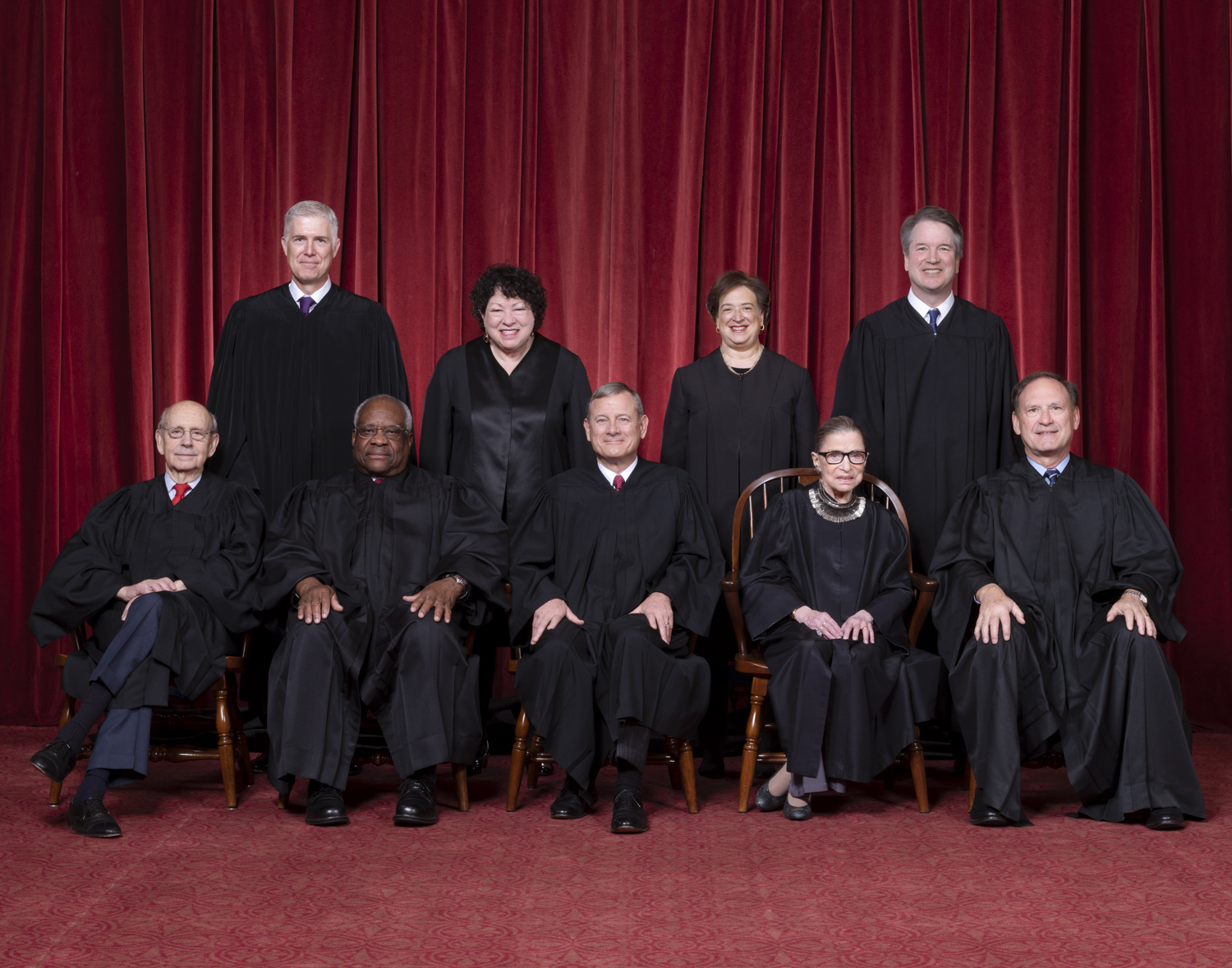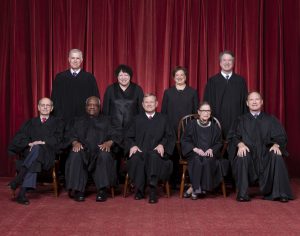
The Price of Religious Liberty
- By Sam Field --
- 13 Nov 2019 --

Seated, from left to right: Justices Stephen G. Breyer and
Clarence Thomas, Chief Justice John G. Roberts, Jr.,
and Justices Ruth Bader Ginsburg and Samuel A. Alito.
Standing, from left to right: Justices Neil M. Gorsuch,
Sonia Sotomayor, Elena Kagan, and Brett M. Kavanaugh.
Photograph by Fred Schilling,
Supreme Court Curator’s Office.
The current challenge for religious liberty, for example, is a clash of the civil rights of LGBTQ persons against the rights of people of faith to practice the dictates of their belief.
Can a Christian physician be compelled to perform a sex-change operation for a transgender patient? Can a Catholic hospital be compelled to offer abortions? Can a Christian baker be compelled to bake a wedding cake for a same-sex couple? Can a wedding invitation business be compelled to do invitations for same-sex couples? So far the answers from various court cases have been no, but there are more challenges to come.
One of the most flagrant of those attacks came about during a recent Democratic Presidential debate, during which Beto O’Rourke said that as president he would take away the tax exemptions for religious institutions if they opposed same-sex marriage. He is no longer in the running for the country’s top office, and even if he were elected, it’s doubtful if he could make good on that threat, especially with a more conservative Supreme Court now sitting, and the difficulty of overturning the First Amendment. But the fact that the political leanings of the Court are even a factor in contentious issues should alert one to the fact that nothing is set in stone, political ideology is increasingly a factor in legal cases, and anything taken for granted can disappear. Our society is changing, and it is only the vigilance and willingness to learn, to speak out and work hard to resolve these issues that will be our ultimate assurance of the continuation of our freedoms.
Unfortunately even well-educated people are quite ignorant about the Constitution, Bill of Rights, Universal Declaration of Human Rights and our form of government – a constitutional republic. A 2016 Annenberg Survey found that only 26 percent of Americans can name the three branches of government. A few years ago Jay Leno, on his late-night television show, walked around the streets of Los Angeles and asked people questions. To one young woman he asked “Who lives at 1600 Pennsylvania Avenue? She didn’t know. Leno then asked “Who lives in a pineapple under the sea?” and she answered correctly: “SpongeBob SquarePants.”
One conservative activist got 50 Yale students to sign a petition to abolish the First Amendment because “it protects hate speech.” So some of the brightest and most privileged young people in America would abolish the First Amendment which not only protects freedom of religion, but freedom of speech, press, of assemblage and petition, because it does not condemn speech that may be “offensive or disagreeable.”
As one publication put it, the dearth of civics instruction in school is producing a “nation of ninnies.” And in an age of anti-social media, instant Internet attacks, hired trolls, acrimony and rage, a grounding in civics is a necessity to keep one from being swept away in a flood of bile. As Thomas Jefferson said, “Educate and inform the whole mass of the people … They are the only sure reliance for the preservation of our liberty.”


















